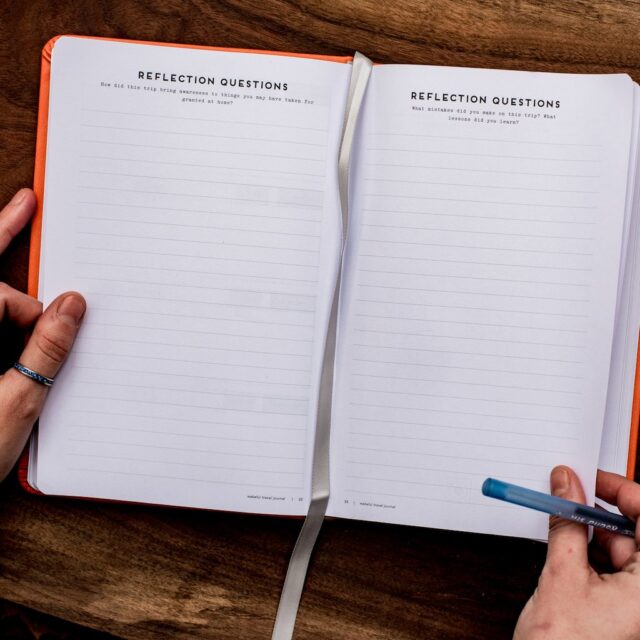One of the most important things we can do to grow into stronger and more resilient individuals is to journal. Journaling prompts are a great way to get you out of your head and into your life.
Journal prompts are a great way to get out of your head. 20 journaling prompts I swear by to get you out of your head and onto the path to living a well-lived life.
 Nicole Feest of NYLONSADDLE Photography took this photo.
Nicole Feest of NYLONSADDLE Photography took this photo.
Journaling is the most effective method to understand how you think and what’s going on in your mind. The issue I’ve discovered is that journaling is so open-ended that I avoid doing it when it might be most helpful to me.
Does this ring a bell? This article is intended to assist you if this is one of the challenges you encounter when it comes to journaling. I’d like to take the guesswork out of how to journal effectively without the impending paralysis that an open-ended prompt can cause.
My first piece of advice? Begin by composing “morning pages”
Consider performing a “mental download” first utilizing the “morning pages” technique (contributor Ellen Koneck published a useful article on this here! ), whether you’re new to journaling or simply looking for some new ideas to try. It’s a wonderful method to lubricate your brain gears and clear away any unfinished chores, items to remember, or mental notes. It also works wonders for fueling the pump when it comes to getting the most out of more focused writing sessions.
After that, go through some journaling prompts

I recommend going on to journaling prompts after you’ve done around 10 minutes of subconscious, nonlinear writing. I have a list on hand that I may return to to assess what I’m up against on any given day or at any given moment. I know which list to concentrate on if I’m feeling anxious.
We journal to connect with ourselves at times, and we write to get perspective in situations that seem out of control at other times. Given the strange times we live in and the proliferation of COVID-19, this worrier is finding journaling to be a very useful tool.
Journaling, when done properly, can be relaxing and mind-clearing. It may aid in the release of bottled-up emotions as well as daily tension. It can assist you in letting go of negative thoughts while also allowing you to explore your anxiety experiences in a safe environment.
The reality is that writing down your thoughts in a diary may have a comprehensive effect on your anxiety. Journaling, when done properly, can be relaxing and mind-clearing. It may aid in the release of bottled-up emotions as well as daily tension. It may assist you in letting go of negative ideas while also allowing you to explore your anxiety feelings in a secure environment.
When we make it a practice to write about both our difficulties and our victories, we get more self-awareness while also learning about our triggers. Below are some of my favorite journaling questions that have helped me tremendously.
Self-Discovery Journaling Prompts:
- What have I learned this year that I didn’t know a year ago?
- What are the things that come in the way of my becoming my most productive self?
- When do I feel the most connected to myself?
- What would someone say about me if they had to describe me?
- What may be put off until the following week?
- What does each area of my body feel like right now?
Prompts for Managing Emotions in Journaling:

- What feelings am I clinging to?
- What is the best way for me to detach or minimize this emotion?
- Why am I carrying out X?
- Why am I in such a bad mood?
- What’s the source of these emotions?
- Have I attempted to remove my ego from the situation?
- How can I separate my feelings from other people’s actions?
- Is it possible that I used appropriate boundaries before I started feeling this way?
Anxiety and Depression Journaling Prompts
- What’s bothering you right now? What can I do to feel better?
- What do I see when I look in the mirror?
- What are the items that are the most “me” in my house?
- So, what exactly am I doing right now?
- What occurred before I noticed a change in my attitude?
- Make a list of everything you’re concerned about. Mark the things that you are certain are true and not just a hunch.
If you’re still not persuaded, research indicates that keeping a diary may significantly enhance your general well-being. Now take a notepad and a cup of tea (or whiskey? ), and start writing.
Journaling is a great way to get out of your head and the amazing journal prompts are 20 journal prompts that can help you do just that.




